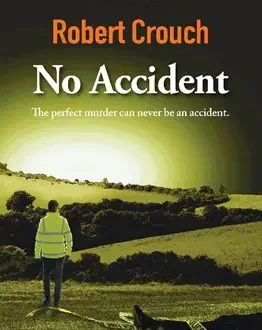
Intense Feelings
Are you a reader who gets hot under the collar about tense?
As a member of several crime fiction groups on Facebook, the question of tense crops up from time to time. Or should I say it cropped up from time to time?
One’s immediate. It’s happening now, right before your eyes.
The other happened at some point in the past. It’s a memory at best.
However you phrase it, the subject of tense seems to evoke strong passions on either side, like most things on Facebook. Whether you’ve given it any thought before, it only takes someone to belittle a story you love and you come out with both guns blazing.
In a lot of cases, you may never have considered the tense the story used. You loved the story, the characters, the plot, the setting.
Isn’t that what counts?
Why do writers set their stories in the present tense?
This question rears its head from time to time.
You might as well ask why do stories have to be set in the past tense. Does it hark back to the times when people gathered around a camp fire and told stories of their elders or ancestors?

There’s something familiar and traditional about someone narrating a story. Whether it’s the memory of parents reading you a bedtime story or the fact the vast majority of stories are told in the past tense, I don’t know.
Or maybe it’s much simpler to explain – people don’t like change. Or something different that challenges the safety of what they know.
If you’re a reader who simply can’t abide stories written in the present tense, you should stop reading at this point – if you’ve come this far, of course.
If you’re more curious, or thinking you may miss out on some great novels – which you will – then let me give you something to consider.
The present tense is more immediate. It’s happening now, as you read. You’re right there, in the thick of it, with the hero who’s about to step into mortal danger. You can feel the tension and adrenaline, the fear in the pit of your stomach as the hero steps into the dark room.
You can get the same feelings if the scene is written in the past tense, but it’s something that’s being recounted, not something that’s happening right now. You’re not quite so involved. There’s a distance between you and the hero.
Or maybe it sounds unnatural for a story to be happening and evolving as you read. There are no filters, no time for the hero to consider what happened before he or she tells you about it in the story.
You’re safe when you read. This is a story that happened to someone else. You can experience their emotions and actions second hand. But in the present tense, you’re there, inside the head of the hero, watching what happens through their eyes as it happens, not knowing what’s coming.
It magnifies uncertainty, suspense, drama or joy, depending on the scene.
The present tense puts you right there in the thick of the action. You are a participant, not an observer.

If that’s not what you look for when you’re reading, fair enough. Most of the novels I read are conventional stories told in the past tense. I enjoy them as much as the next reader. But for me, the reading in the present tense is like watching something on TV in real time.
That’s why I like and use the present tense.
If a story’s good, pulling me in from the first few paragraphs, I don’t notice the tense. Not straight away.
I notice clichés, poor characterisation, overwriting, unexpected viewpoint changes, over description and writing with more similes than you can shake a stick at.
These are my personal bugbears. If a story in the present tense feels unnatural to you, at least I’ve saved you the time and expense of starting one of the Kent Fisher murder mysteries.




